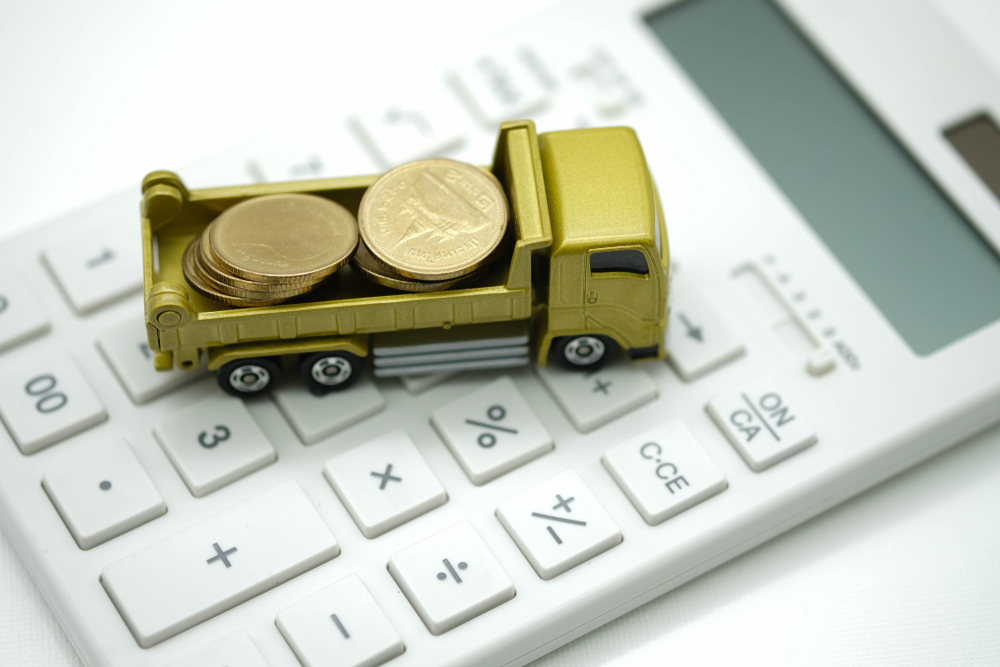Truck driver expenses are a critical factor in the demanding world of long-haul transportation. From fuel and maintenance to compliance, taxes, and tech solutions, there is a lot to track. Understanding these financial aspects is essential for drivers, owner-operators, and fleet managers.
Our Guide to Truck Driver Expenses unravels the fiscal intricacies of the industry. Whether you’re a new driver, owner-operator, or fleet manager, you need practical tips to manage your budget.
Trucking Company Expense Categories
There are many items that can be deductible expenses for a trucking company or owner-operator. We’ll list here some of the most common, but companies may have different expenses depending on their unique situations.
Vehicle and Maintenance Costs
One of the biggest expenses that any trucking company incurs is related to their largest assets — the trucks that make up their fleet. These costs include the purchase or lease of vehicles and trailers and any expenses related to maintenance. Fleets can even deduct expenses related to depreciating property as the value of these assets declines over time and with use.
Insurance
Trucking companies often carry a wide range of insurance types, including but not limited to:
- Motor truck general liability
- Motor truck cargo
- Physical damage coverage
- Non-trucking liability
- Heavy truck roadside assistance
- Rental reimbursement with downtime
- Trailer interchange agreement
- Limited depreciation coverage
- Mechanical breakdown insurance
- On-hook coverage
Premiums for business insurance coverage can be deductible expenses come tax time.
Licenses
Any fees paid related to licensing for a trucking company are deductible expenses as well. This includes fees related to CDLs, USDOT numbers, motor carrier numbers, business entity fees, and any specialty fees needed to conduct business.
Taxes
Trucking companies pay taxes on highway use, fuel, and vehicle purchases. Owner-operators also have income taxes and self-employment taxes. Fortunately, many taxes paid throughout the year can also be business tax deductions.
Other Operational Costs
Other operational costs a trucking company may incur include:
- Fuel
- Office expenses
- Payroll and employee benefits
- Phone and internet costs
- Banking, loans, and credit card fees
- Uniforms and laundry
- Any other costs required to conduct business

How to Calculate and Manage Tax Deductions for Truckers
The keys to getting the most out of trucking tax deductions are organization and documentation. By carefully calculating and tracking expenses throughout the year, you’ll have a far easier time claiming them as deductions come tax time.
There are two basic requirements for all tax deductions.
- The expense must have a valid business purpose.
- The expense must have proper documentation.
Additionally, any expenses used for both personal and business use must have proper proportional allocation or pro rata. This means that if the expense is used only 25% for business purposes, you can only deduct 25% of that expense.
Trucking Expense Sheet
One of the easiest ways to organize and manage trucking expenses is by using a trucking expense sheet. There are many free templates available online, but they may be missing valuable deductions.
Instead, consider subscribing to a trucking management software solution like TruckLogics. This will help you track expenses and claim deductions while offering other benefits like a trucking dispatch system, driver management system, and load board. Best of all, there are packages for any size business, from owner-operators to large fleets and brokers.
FAQs
What expenses can a truck driver claim?
There are many expenses that a truck driver or trucking company can claim as tax deductions. These include expenses related to their trucks and maintenance, insurance premiums, taxes and fees, and other operational expenses.
How do I categorize my trucking business expenses?
This will vary depending on your business and the expenses you incur. Some suggested categories include:
- Maintenance
- Fuel
- Insurance
- Taxes and fees
- Meals overnight expenses
- Equipment
- Office supplies
What is included in a trucking expense sheet?
A basic expense sheet should list all of the categories of expenses you wish to track, along with plenty of space to track the date and cost of those expenses as they come up. It should also include a way to track large assets like trucks, trailers, office equipment, phones, etc. For these items, you should track both the cost of acquiring the equipment and the price you sell it for when you’re done using it or it’s time to upgrade.

